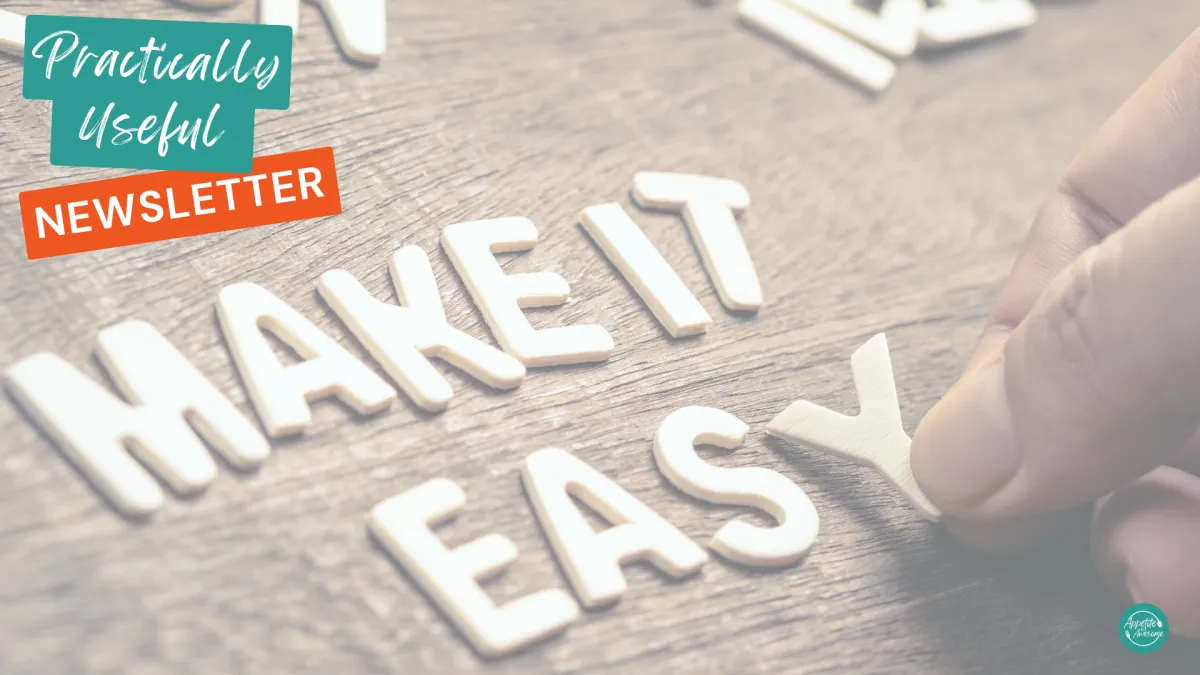
Do Hard Things in an Easier Way
Rethinking What It Takes to Improve Your Health
Let’s face it: most people over 35 don’t start a health journey because life is calm, easy, and spacious or because they’re bursting with energy and confidence.
They start because something feels off — energy is low, weight is creeping up, stress feels unmanageable, or maybe a loved one’s health issues opened our eyes to our own potential risks.
Even when motivation is high, there’s often a quiet dread in the background: “This is going to be hard.”
And you’re not wrong. Change is hard. But it doesn't have to be miserable.
That’s the part most people never hear.
The Lie We’ve Been Sold
Somewhere along the way, “health” upgrades became synonymous with extremes.
A lot of people still think success with health and weight loss requires suffering. They imagine boot camps run by Coach YellsALot, strict meal plans, cutting out all carbs, or waking up at 4 AM to “earn their results.”
These kinds of approaches are everywhere — and they can work… for a little while. But for those of us busy balancing careers, family, hormonal changes, and other midlife stressors, they’re usually a fast track to burnout and the results are short lived. Not because you're lazy or undisciplined, but because they’re unrealistic for the life you actually live.
You’re not failing the plan — the plan is failing you.
What if success didn’t require you to white-knuckle your way through it?
There’s a smarter way to approach change — one that meets you where you are, honors your reality, and actually fits your life.
This isn’t about shortcuts. It’s about strategy.
✅ Start with small wins. Small changes that are easy to implement can build real momentum, and momentum is stronger than motivation every time.
Add protein to your breakfast
Set a reminder to drink water in the afternoon
Walk for 10 minutes after dinner
These don’t seem dramatic — and that’s the point. Research shows we’re far more likely to stick to habits that feel manageable and low-effort. Consistency, however boring it may sound, adds up.
✅ Use tools, not willpower. If your evenings are hectic, don’t rely on motivation to cook. Willpower is a limited resource and you have better things to spend energy on than convincing yourself not to eat the chips or cookies. Structure makes success easier.
Pre-portion meals on Sunday, order a healthy meal delivery service, or keep simple, repeatable dinners on rotation
…and then pack the leftovers for lunch.
Reserve your spot in fitness classes & send yourself a calendar invitation.
✅ Create a plan, and expect it to change. Life happens — travel, deadlines, sick kids, random chaos. That’s not a failure, it’s normal. Build in buffers. Have a Plan B.
Keep protein bars in your bag.
Be OK with fitting in a 20 minute workout from home if you don’t have the full 90 minutes to get to the gym.
Drop the guilt and focus on what you can do.
✅ Make the process fit you. You don’t need to wake up at 5 AM or cut out carbs to get healthier. You need a plan that works with your values, your time, and your goals. That’s how long-term change actually sticks.
Get real about what you have time for.
Get real about what you can stick to for more than a few days (i.e., stop with the overly strict food “rules”).
You Can Do Hard Things. You Just Don’t Have to Do Them the Hard Way.
You’re not looking to overhaul your life — you’re looking to improve it.
More energy. Better focus. Less bloating. Confidence in your clothes. Strength to carry your kids (or luggage or groceries) with ease. That’s what you’re after.
And you can have it. But not by suffering through the approach.
The work is still work — but when it’s done in a way that’s aligned with your life, it becomes not just doable but rewarding.
Choose the Right Kind of Hard
Improving your health will require effort. But it shouldn’t be miserable. There’s a big difference between challenging and unsustainable. Between discipline and deprivation.
Choose the version of “hard” that respects your time, your responsibilities, and your well-being. That’s the path that lasts.
You don’t have to suffer your way to success. You just have to stop trying to do hard things the hardest way possible.
